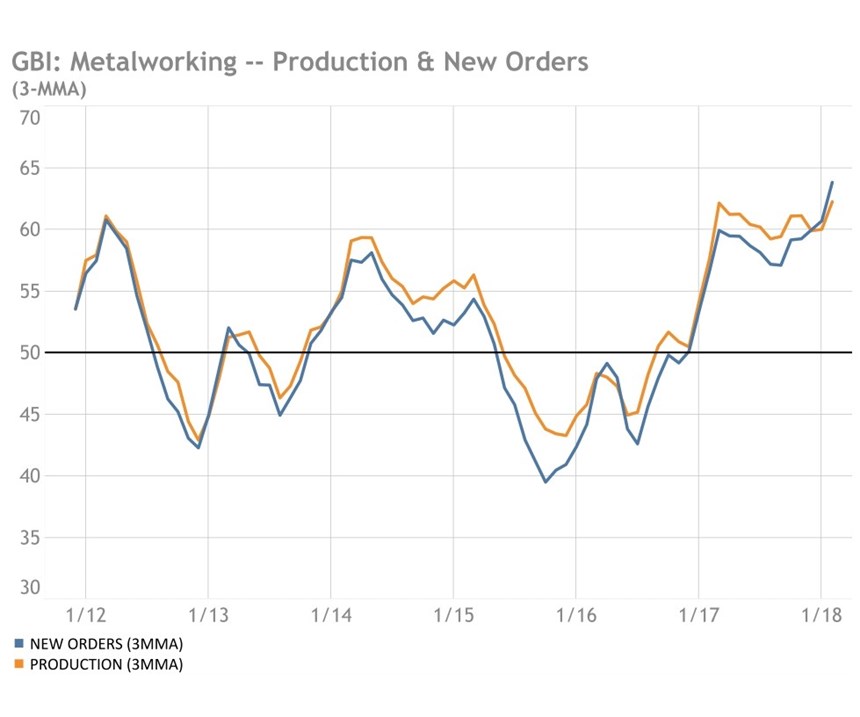Demand for Machined Parts Increases Shop Bargaining Power
Recent economic trends are empowering job shops to negotiate higher prices.
For many job shops, business is booming. An index tracking metalworking reveals as much, and it further shows that demand for machining services may potentially present job shops with interesting opportunities.
The Gardner Business Index: Metalworking (Metalworking Index), an economic indicator for the machine tool industry developed by Gardner Intelligence, takes several factors into account to examine trends in the discrete-parts manufacturing industry, including job shops. Since the end of 2016, the Metalworking Index has found that job shops have been experiencing a steady growth in new orders for parts. Throughout 2017, the rate of growth in new orders has increased dramatically, eventually overtaking the growth rate of production. According to Gardner Intelligence Chief Economist Michael Guckes, “This means that manufacturers were unable to keep pace with the demand or were at least caught off guard by how strong recent new orders volumes have been.”
With the growth of new orders continuing to outpace the growth in production, the job shop owner has more bargaining power when it comes to pricing. Mr. Guckes says, “A growing percentage of shops have recently been able to negotiate for higher prices,” and the Metalworking Index indicates that this trend is likely to continue. Right now, the economy is supporting the bargaining power of part producers, he says. Given that the market is placing a high value on machining, the shop owner should, too.














.png;maxWidth=300;quality=90)
